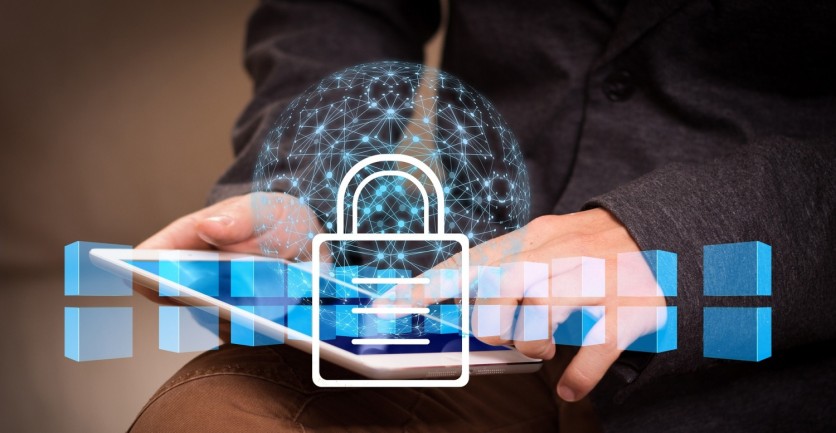
In today's digital age, protecting your data has become more important than ever before. With the increasing amount of sensitive information we share online, the risk of getting your data exposed has also risen. Data breaches can result in serious consequences, such as identity theft and financial loss, so it's important to safeguard your personal information.
In this article, we'll explore tips on putting your data under lock and dive deeper into how proxies and other cybersecurity tools can help you stay worry-free throughout your internet journey.
What is a data breach?
A data breach happens when an unauthorized person or software access sensitive or confidential information. This can happen in various ways, such as through cyber attacks, hacking, phishing scams, or even human error. When a data breach occurs, the attacker can access a range of personal information, such as names, email addresses, passwords, social security numbers, or credit card information. This information can be used for fraudulent activities or sold on the black market.
According to Verizon, 36% of all data breaches in 2022 involved phishing, with over 255 million attempts to collect sensitive data.
Such breaches can have severe consequences for individuals, companies, and organizations, including financial loss, reputational damage, and legal repercussions. Therefore, taking preventive measures to protect your data from such breaches is essential.
High-profile data breaches
Over the years, there have been thousands of high-profile data breaches targeting large corporations, government agencies, and even social media platforms. And although more organizations are taking steps to protect themselves from such unfortunate events, there have been quite a few high-profile breaches recently.
Activision, an American video game publisher based in California, is the publishing business for its parent company Activision Blizzard. The company announced that the hacker accessed the gaming company's 2023 release schedule and sensitive employee information.
T-Mobile, a mobile telecommunications company, experienced an attack where the hacker gained access to T-Mobile systems in November last year and stole the personal information of 37 million customers, including names, emails, birthdays, phone numbers and billing addresses.
Norton LifeLock, a cybersecurity software, announced that over 6,450 customers' accounts were compromised, and the hackers accessed sensitive personal data.
MailChimp, an email marketing platform, informed customers that it had suffered a data breach in January due to a social engineering attack. Hackers have penetrated an internal customer support tool and obtained sensitive employee and customer information and credentials.
Uber, a mobility company, informed that 70,000+ employees and corporate data were stolen and leaked by the hackers called "UberLeaks." According to Uber, this data breach happened because third-party vendor Teqtivity had their mobile device management hacked.
These are only a few companies that suffered from the data breaches, resulting in millions of dollars in loss. And aside from the ongoing legal battles, businesses have to fight to regain their customers' trust.
How do data breaches happen?
Data breaches can occur through various means. Although companies are putting their forces into strengthening their cybersecurity, hackers still find a way to obtain sensitive information.
One common method is hacking. Cybercriminals use various techniques to penetrate an organization's network security and gain access to data.
Another way data breaches occur is through malware, which can be delivered through phishing emails, infected websites or downloads, or an infected device.
Physical theft, such as stealing laptops or hard drives containing sensitive data, can also result in data breaches.
Human error is a less common reason for a data breach; however, still dangerous. Employees leaving passwords or sensitive data in plain sight or failing to update software or security measures can lead to the exposure of sensitive information.
Tips on preventing data breaches
According to the Ponemon Institute, 77% of companies are ill-prepared regarding data breaches. Such alarming findings show that taking preventative measures is critical to avoid falling victim. Here are some ways companies and individuals can protect themselves from data breaches.
For organizations:
Implement strong password policies and require regular password changes;
Utilize two-factor authentication for added security;
Regularly update software and security systems;
Encrypt sensitive data both in storage and in transit;
Train employees on data security best practices and provide ongoing education;
Perform regular security audits and vulnerability assessments;
Have an incident response plan in place in case of a breach.
For individuals:
Enable two-factor authentication;
Report phishing scams and suspicious emails or links;
Buy residential proxies and rotate your IPs;
Use antivirus software;
Be cautious about sharing personal information online.
How can third-party tools help to protect your data?
Cybersecurity tools like proxies or two-factor authenticators work like virtual locks, preventing hackers from accessing your personal information.
When equipping proxies, users can mask their original IP address and location, which can help protect their personal information from being tracked or monitored. Additionally, users buy residential proxies for an extra layer of privacy and security when connecting to public networks.
Two-factor authentication tools require two forms of identification to access an account, such as a password and a verification code sent to a mobile device. This extra step helps protect personal information by making it harder for unauthorized users to access an account.
Bottom line
Both organizations and individuals should invest in their cybersecurity and take all the preventative steps to avoid unpleasant scenarios when their data is exposed.
Even though data breaches can happen in various ways, tools like proxies and two-factor authenticators can help individuals and companies better protect their sensitive information.




